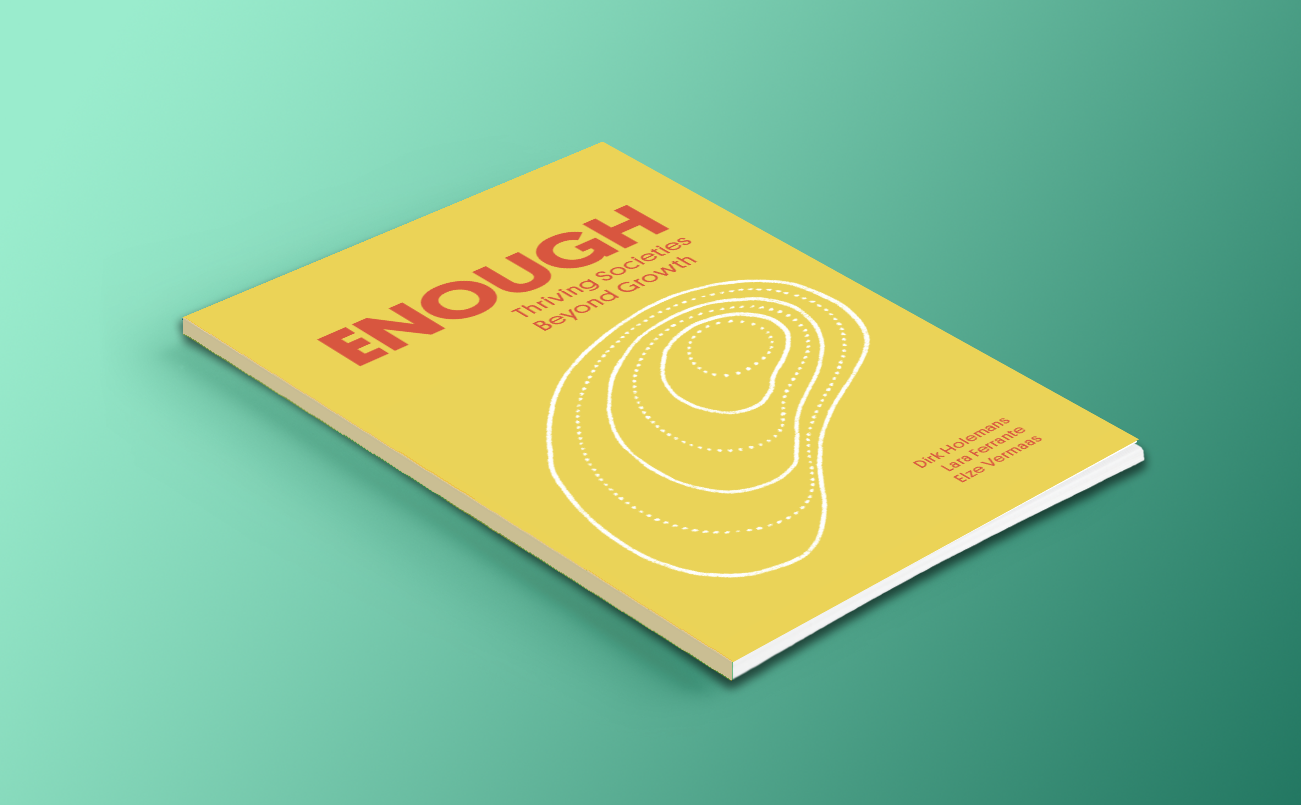The ecological crisis shows that infinite growth on a finite planet is impossible. Meanwhile, the current economic system fails to secure livelihoods and exacerbates inequalities. There is an alternative to this self-destructive system: an economy of enough, which would provide for everyone’s basic needs while addressing greed and overconsumption.
The EU has the potential to lead the ecological transition. Although the Green Deal was a significant step forward, it remains entrenched in a growth-addicted economy centered on competition within a single market, and it does not sufficiently address social inequality. We need to envision a different European economy, rooted in a new paradigm, before we can build it.
In this essay, the authors build on the work of visionaries, both past and present, recognising that Earth is on loan to us from future generations. They explore how societies can thrive without depending on economic growth. The essay presents a compelling vision: fewer private jets, less inequality, fewer burnouts, and reduced waste, alongside more quality of life, more time for each other, more sustainable products, and a healthier planet. In other words, this essay provides the keys to imagining a different Europe – one that ensures a good life for everyone within the planet’s limits.
The ecological crisis in its entirety, including climate change, biodiversity loss and all its other facets, is without doubt the greatest challenge of our lifetime. […] For this reason, grand projects like the European Green Deal have begun to address social dimensions to guarantee that the transition is a just one.
About the authors
- Dirk Holemans is director of Think Tank Oikos and former co-president of the Green European Foundation.
- Lara Ferrante is a staff member at Oikos and wrote a master’s thesis on degrowth.
- Elze Vermaas is a staff member at Oikos and former vice-chair of the Dutch young green think tank Jong Wetenschappelijk Bureau GroenLinks.
Endorsements
“Have you ever wondered how our social, economic and ecological crises are connected, and what we could do about them? This short and perfect book demonstrates how a ‘Wellbeing Economy For All’ addresses the interconnected crises of our time, and imaginatively motivates us to be part of its realization.” — Julia Steinberger
“For too long, the planetary crisis has loomed as a monstrous inevitability. But what if we dared to imagine otherwise? Enough paints a vibrant picture of a society that has transcended the limitations of endless growth, prioritising ecological well-being and human connection. It takes on the difficult task of envisioning a future where societies can thrive beyond the shackles of constant expansion and in harmony with the natural world.” — Amitav Ghosh
“This book does crucial work in offering vision, delivering hope and providing a way forward from a world where we are trashing the planet while creating miserable societies. It works towards a model for living within the limits of this fragile planet while allowing humans to thrive in a healthy future.” — Natalie Bennett
“Enough is a brilliant combination of imaginative vision, conceptual clarity and concrete proposals. A necessary handbook for an ecological civilisation.” — Roman Krznaric
“Enough challenges us to look beyond the current economic models that form the root cause of the climate crisis. If our human society is to survive this century, fundamental change is inescapable. This means embracing enough, coupled with a profound decolonisation of current world relations and building true democracy.” — Anuna De Wever
Book tour
With book tour events across Belgium, Croatia, Ireland, the UK, Finland, and Sweden, GEF is using this book to spark conversations across the continent on how Europe can reconcile social and ecological justice in a wellbeing project for all. You can watch the recordings here.
This publication has been realised with the support of Oikos Think Tank and the financial support of the European Parliament to the Green European Foundation. The European Parliament is not responsible for the content of this publication.


